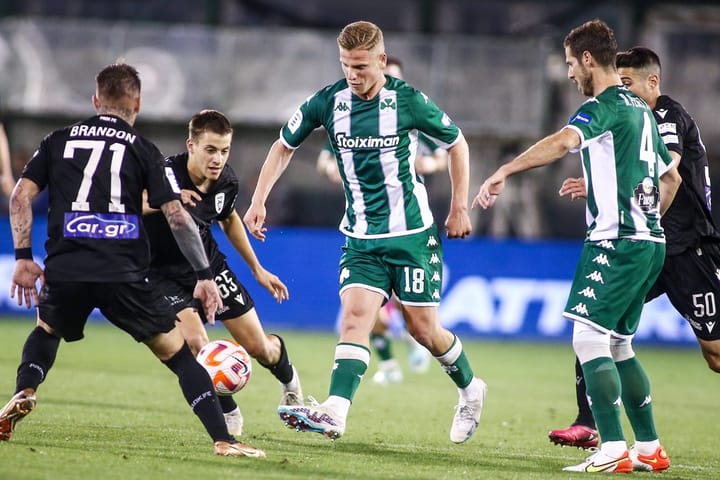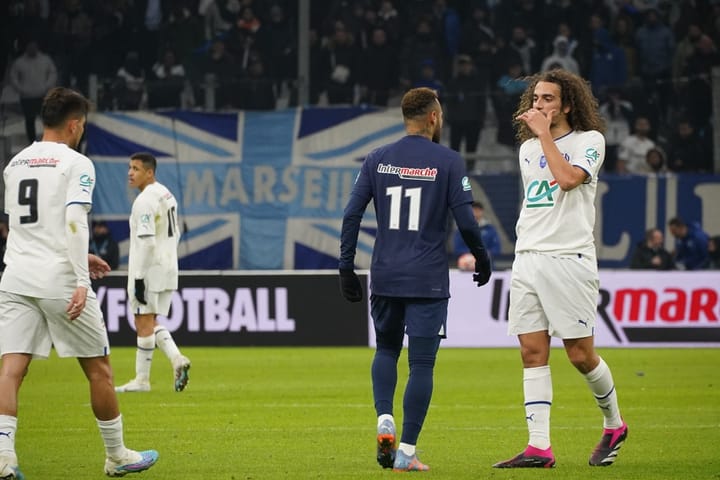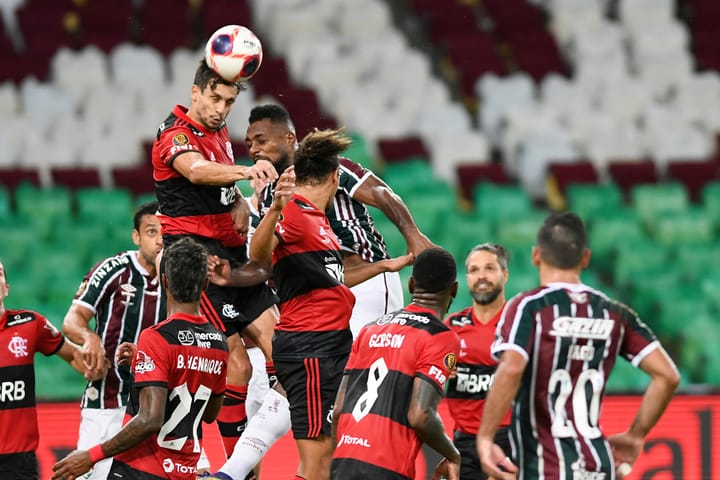It's not just hard tackles. Portuguese soccer is merely about skills and mental resilience
The dedication and commitment of Portuguese players and coaches, combined with a focus on mental well-being, have played a significant role in their achievements in the global soccer arena.

Portugal is known for various topics, from fado music and good food to politics. Still, soccer is its most important export. In almost all leagues, the Portuguese are defining players, of whom Cristiano Ronaldo is the outstanding phenom, the Portuguese GOAT.
But what to think of Rafael Leão (AC Milan), Bruno Fernandes (Manchester United), Nuno Mendes (Paris Saint Germain), João Cancelo (Bayern Munich), André Silva (RB Leipzig), Francisco Conceição (Ajax Amsterdam), and Nani (Adana Demirspor)... And what about world-class coaches like Jose Mourinho (AS Roma) and Jorge Jesus (Al-Hilal)?
836 Portuguese professional soccer players and coaches earn their money abroad. They are everywhere, which is remarkable for a relatively small soccer country.
According to the Portuguese government, 4 million Portuguese citizens live and work abroad, most of whom immigrated in the early and mid-20th century. They settled mainly in France, Germany, Switzerland, Luxembourg, the United States, Canada, Brazil, and Venezuela. In the United States, most Portuguese settled in Massachusetts, California, Rhode Island, and New Jersey.
Portuguese workers are known for being adaptable, hardworking, and frugal. It's in their nature. They are easy-going and helpful, with a touch of conservatism, but undeniably possess the will to succeed wherever they are. Portuguese soccer players are no exception. They show great adaptability and have the perseverance required to add value to their foreign employers.
Portugal has produced exceptional talent, showcased by players like Eusébio, Luís Figo, and Cristiano Ronaldo, propelling the national team to achieve its highest-ever FIFA ranking of number 3. On two occasions, the team reached the World Cup semifinals in 1966 and 2006, with their best finish being third place in the 1966 tournament. On the regional front, Portugal made it to the finals of the European Tournament in 2004. Still, it lost to the underdog Greece in a match characterized by the winning team's defensive strategy, which frustrated Portugal's usually offensive-minded squad. The pinnacle of their achievements came in 2016 when Portugal won the UEFA European Championship, defeating France in the final.
Soccer, or futebol, is deeply ingrained in the nation's cultural fabric. The Portuguese style of play resembles the Brazilian soccer style, reflecting the influence of Portugal's former colony. Portuguese are a little more defense-minded and, in that respect, more like Italy and England. A defender like Pepe is renowned for his hard tackles and ruthlessness. However, unlike the physicality of Italian catenaccio, Portugal merely relies on finesse and skill. They mainly look for short passing, which requires good technique and ball handling. The ability to act quickly is crucial. It's not just hard tackles; it's not just provoking. It is mainly skilled, good soccer.
The national team now has qualified for 11 consecutive World Cups and European Championships. That is a massive achievement. At the ECs, it reached at least the semifinals. The tactics of Portuguese football encompass compact defensive organization, high pressing, and an emphasis on technical proficiency. Portuguese coaches and teams have demonstrated a keen ability to adapt their strategies and game plans to exploit opponents' weaknesses.
Kids grow up with it and know how to perform. For many youngsters, soccer is a way out of sobriety and poverty in which they have grown up. Hundreds of scouts across the country (and South America) are seeking talent, enticing them to visit one of the country's well-known soccer academies.
Youth development is a business model in Portugal. Transfers have generated over 3 billion euros in the past seven seasons. Benfica, FC Porto, Sporting Club de Portugal, and Braga are among the best football academies in Europe. The facilities are state-of-the-art, and all academies have sports scientists who operate based on the latest insights. Forming great personalities is perhaps the most essential objective of the academies. In addition to creativity and technique, respect, politeness, and resilience are highly emphasized. Talent is nurtured to succeed in any competition they find themselves in. They learn to deal with pressure and how to accept disappointment.
Mental toughness is a quality that allows players to be more consistent and better than their opponents in remaining determined, focused, confident, and in control under pressure. The will to win is an important parameter that makes great competitors. In some competitions, it has been observed that players lacking physical fitness won the match solely due to their determination.
Focus on Mental Health
Within the academies, there is plenty of focus on mental health. The mind is often an overlooked theme. Most coaches only pay attention to physical fitness. How fast can one run? How hard can he/she tackle? However, sports scientists realize mental health is more important than any other game aspect. The mind is the source of success or failure. It is only when the mind gets tense that the body gets tense.
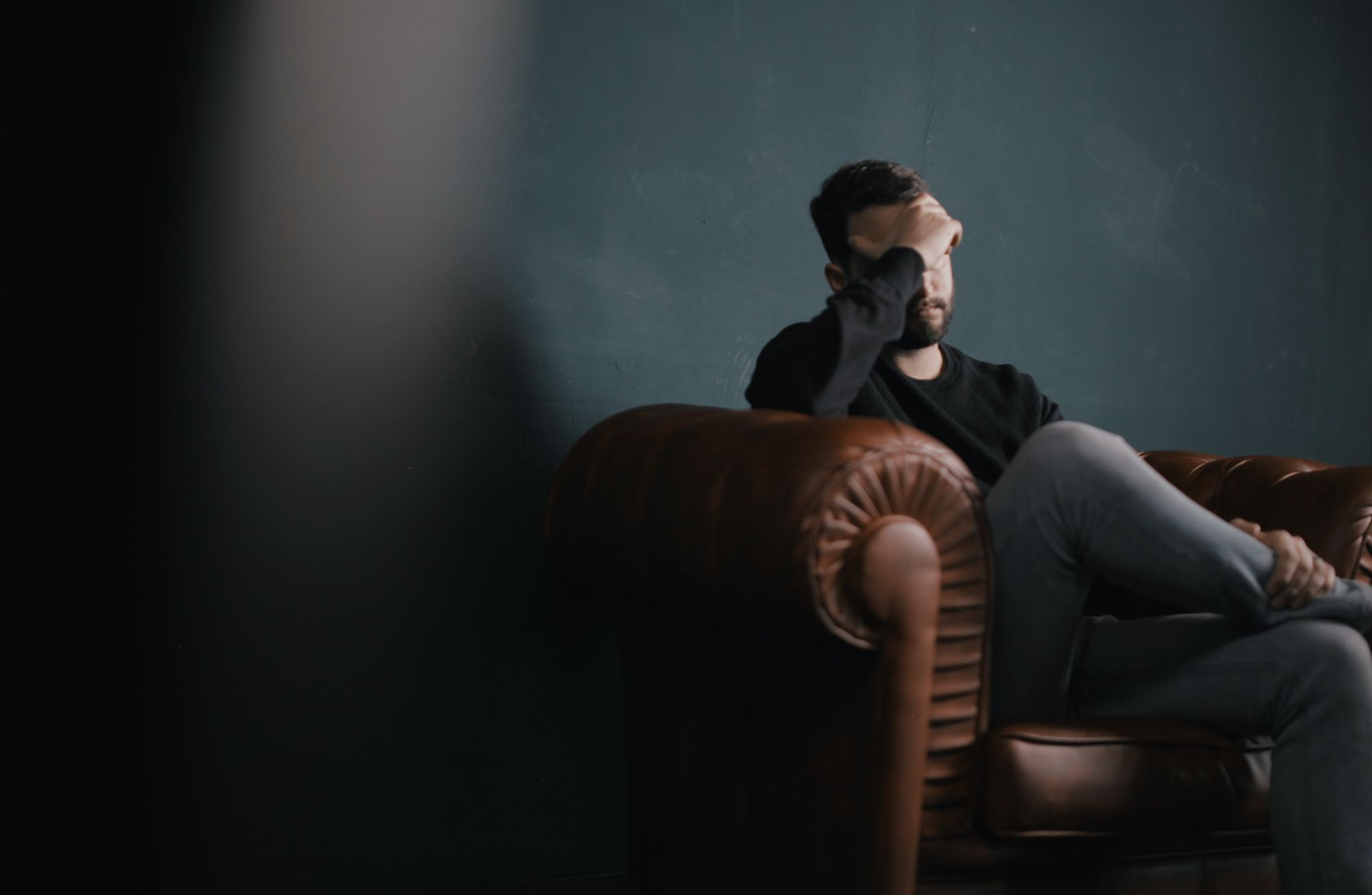
Men's Health magazine recently discussed this with André Miguel Valente da Silva, the 28-year-old forward from Manchester City and the Portuguese national team.
Splitting his time between the Bundesliga and Portugal, Silva is aware of his responsibility for his sport, physique, and mental health. That's why he doesn't want his life to revolve solely around soccer. "I enjoy doing other sports like paddle tennis with family and friends," he explains. "And I love biking and canoeing. Football is very demanding. There were a lot of situations when I didn't feel well," says Silva as he reflects. "We have so many games, flights, and training sessions. Soccer can be a burden on the body and mind. Somehow, the tough moments made me stronger and helped me succeed. I never gave up, but it wasn't easy. We must be aware of mental well-being because it is underrated."
Struggling
Portugal's Euro 2016 hero, Eder, recently opened up about his struggles with mental health, revealing that he considered suicide. The striker faced intense criticism from fans and the Portuguese press after his poor performances at the 2014 World Cup. The negative comments deeply affected him, leading to self-doubt and despair. However, Eder found solace and support in working with a psychological coach, Susana Torres, an Braga's Soccer Academy associate. She helped him regain his confidence and belief in himself. Eder's remarkable turnaround led to his match-winning goal in the Euro 2016 final against France.
Work hard and stay positive 🤷♂️ pic.twitter.com/eqVqwNa1dD
— André Silva (@andrevsilva19) May 12, 2023
André Silva is familiar with Eder's former struggles and doesn't want to go there. He's doing everything to balance his life, finding the equilibrium between the physical and mental aspects, nutrition and training, rest, and busy time. "Everyone is mentally and physically different, so I must focus on myself and maintain balance. I like to go to the gym even before training because soccer can put us off balance," he says. "By constantly staying balanced with your body, you can try to prevent injuries and maintain control. Of course, you don't know what will happen in the future, and some things are unlucky, but we can prepare and focus on ourselves and things we can prevent. Getting enough sleep and paying attention to good nutrition are the most important things."
Avoiding injuries
Injuries are a nightmare. They can set a player back and even break them mentally. João Brito, the physiologist of the Portuguese Football Federation, has been researching this since 2006. He is an exercise physiologist and strength and conditioning specialist in the Health and Performance Unit. João holds a Ph.D. in Sport Sciences from the University of Porto, with research interests in injury prevention, strength and conditioning, and training and game load monitoring.
He has co-authored dozens of scientific articles, many focusing on sleep—his conclusion: Adult soccer players need, on average, 8.1 hours of sleep to feel rested. However, many players (47.9%) fail to meet their sleep needs most nights. Athletes with low sleep quality, excessive daytime sleepiness, and an evening chronotype seem to be at a higher risk of insufficient sleep, which can negatively impact their performance, recovery, and mental health.
It's no wonder André Silva is deeply concerned about his sleep.
In December 2022, Brito and other scientists published the results of another interesting study: "The perception of injury risk and prevention among football players: A systematic review."
During this research, Brito discovered that most players perceive injury risk and prevention strategies differently. Most football players agree that their risk of injury is high and that prevention strategies are essential. However, they only sometimes intend to use these strategies. Often, they feel the need when it's too late.
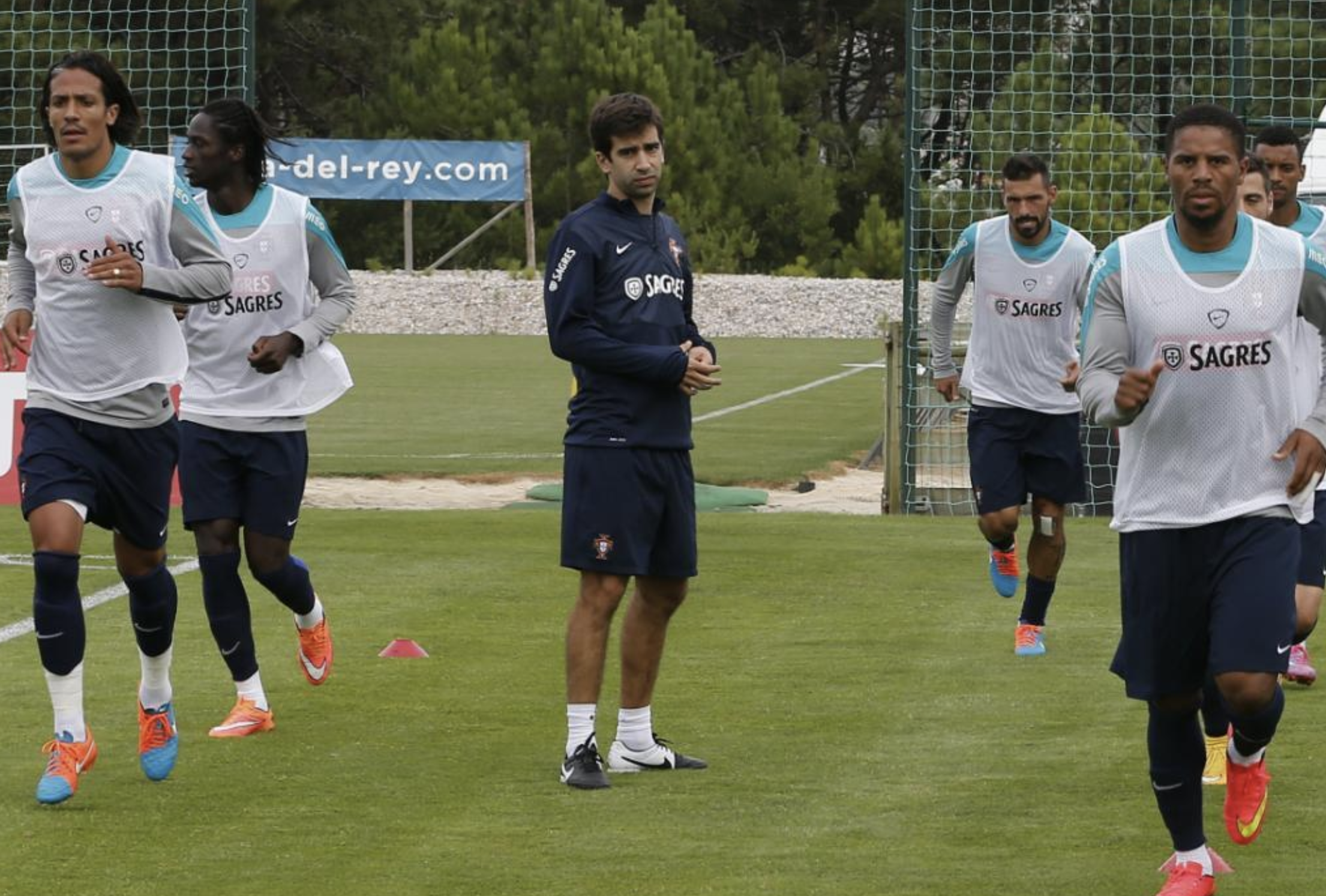
In contrast, most time-loss injuries in professional soccer players result in an absence of up to four weeks. With such numbers, soccer-related injuries can significantly impact the physical, mental, and financial burden on players and their clubs. For example, the cost of an injured player in a professional team has been reported as €500,000 per month. Injuries can also impact socioeconomic systems worldwide, necessitating socio-ecological perspectives that consider specific contexts and integrate comprehensive analyses at multiple levels.
An individual approach.
Due to many different perspectives, Brito develops specific injury prevention plans for each individual player. After the Portuguese Futsal team became the world champion in 2021, the physiologist provided insight into his methodology. Throughout the training and preparation program, he monitored all training sessions, including volume, exercise structure, and area of play. He collected data on intensity, workload, perceived exertion, wellness, and well-being.
The latter stands out. It shows the interconnection between the mind and the body. Performance coaches no longer look only at the physical condition of soccer players. Brito: "Injury prevention and athlete recovery are absolutely fundamental. I support players in nutrition, training, and game monitoring to keep them fit, also ensuring good sports science and medicine practices."
Ronaldo opens up
In an interview with Spanish AS, Cristiano Ronaldo (#CR7) spoke about the importance of relaxation and mental freshness. "Recovery is more important than actual training sessions due to the many games I play. Winding down and resting are key parts of my day-to-day routine, enabling me to perform at the highest level in my profession and extend my career." Ronaldo remains fully dedicated to healthy living, ensuring he swims at least once a day.
CR7 has never kept it a secret that he has had his ups and downs and seeks the help of psychologists when the situation demands it. In 2022, he invited Canadian therapist Jordan Peterson to visit Manchester because he didn't feel safe at the club and had experienced the loss of a child during the birth.
He sent a message to the world a year earlier on World Mental Health Day.
"Let's get stronger together."
In other words: You are not alone.
This is precisely what sports scientists like Brito claim. It is not surprising that the success of the Portuguese national team is partly attributed to the mental resilience of its players. Together they are a tough side to beat.
But there is more worth mentioning:
Technical Proficiency
One of the hallmarks of Portuguese soccer is the emphasis on technical skills. From Cristiano Ronaldo's powerful dribbling to João Félix's delicate touches, Portuguese players often possess the technical prowess to unlock defenses and create scoring opportunities. This focus on technical proficiency can be traced back to the country's strong foundation in youth development programs. Portuguese academies highlight honing players' technical abilities from a young age, emphasizing skill development and close ball control.
Tactical Flexibility
Portugal's success in international competitions can also be attributed to their tactical flexibility. Coaches and players adapt their strategies based on the strengths and weaknesses of the opposition, showcasing a versatility that allows them to compete against different styles of play.
Traditionally, Portugal has favored a possession-based style of play. However, they have also displayed a pragmatic approach when necessary, effectively transitioning to a more counter-attacking style. Portuguese teams are often described as intensely attacking due to their directness, verticality, and progressive play. Players constantly run behind defensive lines to create passing options and exploit the vertical spaces. Players fluidly rotate positions and check for the ball in different areas. They constantly seek opportunities to receive the ball between the defensive lines. If they don't receive it immediately, they move again to create space for another player to check-in. Once the player receives the ball, he quickly turns. Simultaneously, one of the forwards makes a run, attacking the space behind the defense. They progress from the midfield to the final third with just two passes.
Another characteristic of the attacking system is the constant search for space and the frequent use of combinations. Given the proximity of players to each other, quick combinations allow teams to progress through the opponent's defensive lines effectively.
Like the attacking phase, the defensive system is known for its intensity. The high press is characterized by aggressiveness and a focus on creating goalscoring opportunities from turnovers. The defensive structure is relatively straightforward. While maintaining a man-to-man organization, the objective is to compress and congest the opponent's playing area. After the opposition plays the ball to either side, the aim is to cut off passing options and pressure the ball carrier, using the touchline as an additional defensive tool.
Counter-pressing is another integral part of Portugal's defensive system. It aims to prevent or delay the opposition's counter-attacks. While counter-pressing offers an immediate chance to regain possession, it also allows other players to organize defensively.
Creative Expression
Versatility is a crucial weapon. Portuguese teams can quickly adapt and change their system when the situation requires it. Players are encouraged to take risks, express themselves, and showcase their skills. The Portuguese style of play often involves intricate combinations, quick interchanges of passes, and imaginative movements off the ball. This creativity is not limited to the attacking phase but extends to defensive situations, with players employing clever positioning, anticipation, and tactical intelligence to disrupt the opponent's play.
Mental well-being is crucial
Players and coaches in Portuguese soccer share common traits, including adaptability, hard work, and a determination to succeed. They are aware of the importance of mental health and strive to maintain balance. Sleep, rest, nutrition, and mental well-being are crucial aspects that contribute to their performance on and off the field.
By understanding and addressing players' specific needs and perspectives, including injury prevention and mental health support, Portuguese soccer has succeeded despite being a relatively small country in terms of population. The dedication and commitment of Portuguese players and coaches, combined with a focus on mental well-being, have played a significant role in their achievements in the global soccer arena.


